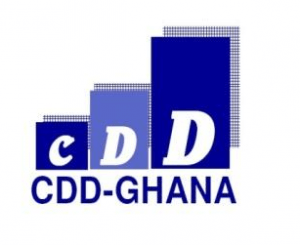CDD-Ghana proposes creation of separate fund to support emergency healthcare services
 The Centre for Democratic Development (CDD) has proposed the creation of an independent funding mechanism to support pre-hospital care and emergency health services in the country.
The Centre for Democratic Development (CDD) has proposed the creation of an independent funding mechanism to support pre-hospital care and emergency health services in the country.
Dr. Kwame Sarpong Asiedu, Democracy and Development Fellow in Public Health at the CDD-Ghana, who made the proposal, said the establishment of an autonomous fund with appropriate legal backing, would help provide the needed financial resources to the National Ambulance Service (NAS) to offer efficient emergency services to the public.
In a paper made available to the Ghana News Agency in Kumasi, Dr Asiedu pointed out that, inadequate resourcing of the NAS had led to needless deaths during emergency situations in several parts of the country.
He said emergency medical care formed an integral part of any efficient health system.
“They are a lifeline as their inefficiency can drive a population’s high mortality”, he said.
Dr Asiedu said NAS which has been mandated to be mainstay of pre-hospital care, was facing serious financial and logistical challenges which had contributed to the death of many people in times of emergencies.
There was therefore the need for an independent financial system that would allow individuals and corporate bodies to contribute to support the government in funding emergency health care services in the country.
“I suggest that the public would have to partner government in funding the NAS by meeting it halfway.
The indicative cost per person should be calculated based on the average yearly cost of running the organization.
This must be independently verified and stripped of all waste, the price would have to factor in wear and tear due to poor roads and a replacement time frame for the existing ambulances”, he said.
He said the contributions from citizens towards the NAS fund must not be seen as a tax, but as a form of insurance that would eliminate the need for upfront payments when patients may lack the consciousness or ability to pay to save themselves.
Dr Asiedu said the funds must be managed in such way that a portion could be invested to generate additional revenue for pre-hospital care in an emergency.
He also suggested that the NAS be given key performance indicators (KPI) that measured its mean response times and clinical outcomes, such as patient survival rates as a minimum.
He said these KPIs should be publicly available, and the organization’s leadership should be evaluated based on these measures.
Dr Asiedu said these indicators, according to him, would help remove the blame game and anger directed towards NAS leadership and staff, when under-resourcing made it impossible for personnel to render efficient services to save a life.
Source: GNA
